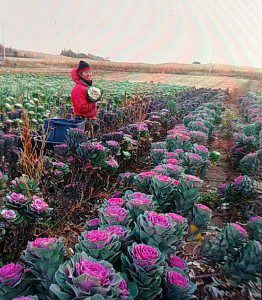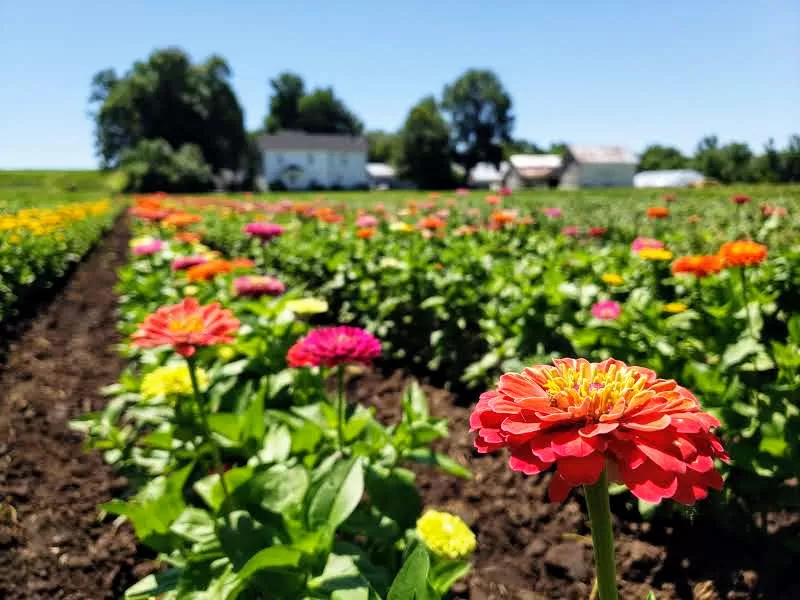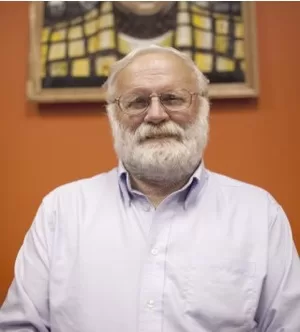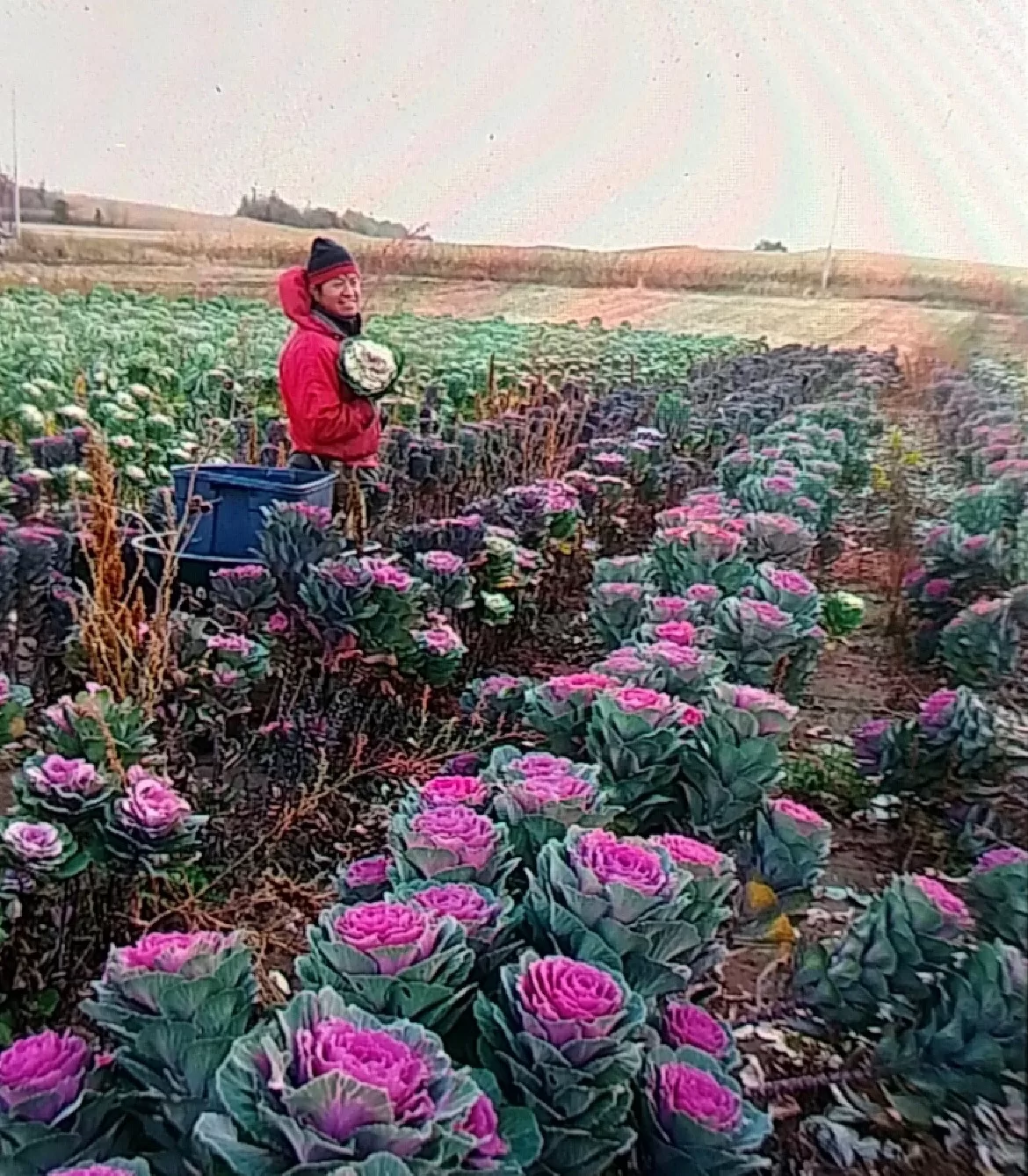|
The Power of Collaboration: As Seen Through the Eyes of John Flory

“Collaboration, especially in these times, is so powerful,” says John Flory, Special Projects Director for the Latino Economic Development Center (LEDC). For the past 13 years, LEDC has been working to support Latino entrepreneurs throughout Minnesota. Like LEDC, the Hmong American Farmers Association (HAFA) too works to uplift Hmong entrepreneurs. In fact, it was through a meaningful collaboration with LEDC in late 2011 that got HAFA started. Pakou Hang, HAFA’s Executive Director, often says if there wasn’t an LEDC or John Flory, HAFA would never have been created.
Later in 2017, John will be retiring from LEDC, and as an organization that has greatly benefited from his hard work, HAFA would like to celebrate John and his tireless commitment to both HAFA and LEDC.
John likes to joke that he is the token white guys at LEDC and HAFA. Although he was born in the United States (U.S.), John’s first words were actually Chinese (where his family were missionaries for the first three years of his life), and he grew up in Ecuador from the ages of five to 12 years old. John says his personal experiences of growing up in Ecuador, and then returning the U.S. in the late 1950’s and 1960’s, inspired him to work with immigrant communities in the Twin Cities.
John started this career in economic development with the Whittier Neighborhood Development Center in1988. While he was working there, large groups of Latino immigrants started moving into Minneapolis. Because he could speak Spanish and wanted to provide opportunities for small business owners, John helped start the Spanish language entrepreneurial program. In 1999, many graduates of the program went on to launch the Mercado Central–a vibrant, Latino community-gathering place on Lake Street in Minneapolis. The Mercado Central eventually led to the creation of LEDC, and since, LEDC has helped launch over 200 Latino businesses with sales in excess of $50 million.
In 2011, Pakou went to visit her old friend, Ramon Leon, the founder of LEDC. Pakou wanted to start a frozen egg roll business and she knew Ramon and LEDC could help. In between talks about HAACP plans and food labels, Pakou started having conversations with John around entrepreneurship and economic development in the Hmong farming community. John and Pakou discussed how they could leverage resources to assist both Latino and Hmong farmers. Soon John contracted with Pakou to interview Hmong farmers and that eventually led to the formation of HAFA.
In HAFA’s inaugural period, LEDC served as the organization’s fiscal agent. And since then, LEDC and HAFA have continued to work closely together, collaborating whenever possible; and sharing ideas, challenges, and opportunities. In fact, HAFA and LEDC received a $600,000 grant to develop a bicultural and bilingual training program aimed at increasing the farming and business acumen of immigrant farmers. The alliance of these two organizations–run by and serving minority communities– help reinforce each other’s missions and allows them to accomplish more than they could alone. Collaboration is powerful, just as John Flory sees it.
“Hmong farmers constantly inspire me”: A Conversation With Mary Ellen Frame
 “Hmong farmers constantly inspire me,” says Mary Ellen Frame, “their adaptability is impressive, they brought knowledge from a place where the climate, soil, pests, weeds, let alone the economy are all so different, yet they still are such skilled farmers here in Minnesota.” Mary Ellen was acquainted with HAFA when she attended Pakou’s convocation at Carleton College last May. She also saw the “Seeds Of Change” exhibit, highlighting Hmong farmers at the Minnesota Museum of American Art.
“Hmong farmers constantly inspire me,” says Mary Ellen Frame, “their adaptability is impressive, they brought knowledge from a place where the climate, soil, pests, weeds, let alone the economy are all so different, yet they still are such skilled farmers here in Minnesota.” Mary Ellen was acquainted with HAFA when she attended Pakou’s convocation at Carleton College last May. She also saw the “Seeds Of Change” exhibit, highlighting Hmong farmers at the Minnesota Museum of American Art.
Mary Ellen is a pioneer in sustainable agriculture. She grew out of a family of farmers, and started her own little farm in 1989 in Northfield, Minnesota. She has been a part of the Sustainable Farmers Association since its onset 25 years ago. During her lifetime of farming, vast changes have occurred in the field of agriculture.
Despite some challenges, she says that in her opinion, these changes are positive. “When I started my tiny farm in 1989, it was very exceptional to farm in a way that was good for the environment,” she said. She has witnessed the growth of farmers markets and small, diversified farms, as well as publicity and visibility increase through the hard work of people who are passionate about this kind of farming.
A prevalent and crucial challenge Mary sees in sustainable agriculture is land access. “Cost of land is the biggest barrier.” Land access is one of HAFA’s main areas of focus. Access to affordable and long-term land near metropolitan areas is a problem for our farmers, and necessary for sustainability and vitality. Mary’s glad that HAFA farmers are able to acquire land and hopes even more are able to in the future.
Also, she is pleased that collaboration is easy for HAFA farmers, because they work in close proximity on the HAFA farm. As a farmer, she considers idea sharing and ready communication key aspects for success. Partnership helps ensure that farmers learn from each other and pass down information.
Mary Ellen Frame is a new supporter of HAFA. Seeing people passionate about sustainable agriculture and a group of talented farmers succeed makes her very happy. Thank you for your support Mary Ellen!
Hmong Tab Laj Farm: Two (and more) are better than one
 In the mid-2000s, two school-aged children, a newborn baby, a fulltime job, lack of rest and farming on land an hour away from home pushed HAFA member, Song Moua, to the verge of ending her family farm business.
In the mid-2000s, two school-aged children, a newborn baby, a fulltime job, lack of rest and farming on land an hour away from home pushed HAFA member, Song Moua, to the verge of ending her family farm business.
Song struggled to find a sense of balance with her family responsibilities and the farm business until her husband, Lenny Xiong, saw the importance of locally grown food and realized the farm business was more profitable than a fulltime job.
Now they both farm fulltime during the growing season, and their operation, Hmong Tab Laj Farm, brings them a sustainable livelihood doing the thing they are passionate about. Their kids are older and able to help out, and they’ve even leased 12-acres in Cottage Grove for another 10 years.
“We are happy to have this 10 year contract. It’s allowing us to increase our perennial production which  helps our income increase because we can sell more to the HAFA Alternative Markets Program.
helps our income increase because we can sell more to the HAFA Alternative Markets Program.
And now Song and Lenny are able to focus on financial aspects of their farm business instead of worrying about land access. Other aspects of the business that Song and Lenny wish to focus on this year including focusing on profitable crops and investing in equipment that will make their farm run smoothly.
The husband and wife duo have taken their knowledge gained from HAFA trainings this year and re-evaluated their farm business. They calculated their cost of production for each crop and decided to cut 40% of their crop varieties due to lack of profitability while still maintaining a healthy variety.
 Their second goal is to prevent crop loss throughout the season.
Their second goal is to prevent crop loss throughout the season.
“We hope to extend our selling season through the winter and sell frozen strawberries and rhubarb. We also want to make fermented leafy greens.”
The family hopes to also launch their first packaged product this year through HAFA’s newly launched Value-Added Program. The program allows families to use a commercial kitchen to process and package their vegetables and sell it in a different form allowing for an additional form of income.
“I am thankful my husband joined me in the farm business because we wouldn’t be as successful as we are right now without the commitment of the whole family.”












 We are dedicated to advancing the prosperity of Hmong farmers through cooperative endeavors, capacity building and advocacy. HAFA was started and is led by family farmers. Organizing is in our DNA.
We are dedicated to advancing the prosperity of Hmong farmers through cooperative endeavors, capacity building and advocacy. HAFA was started and is led by family farmers. Organizing is in our DNA.